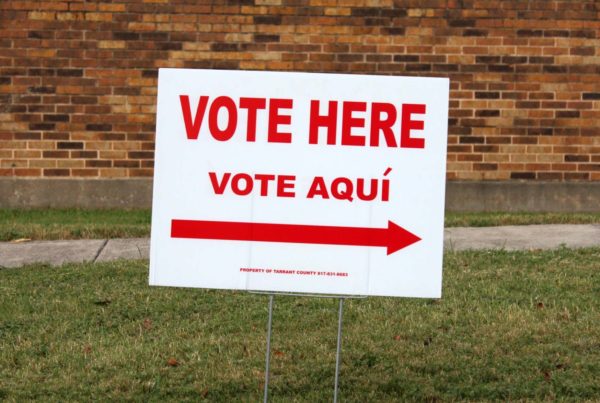After gas prices eased this summer, they’re on the way back up again.
At least part of the rise is due to the announcement from OPEC last week, saying the group of oil producing countries would be slashing production by 2 million barrels per day. Though those cuts are set to begin in November, the markets are already reacting. The Biden administration called the move “shortsighted” – and rising gas prices will likely do the Democrats no favors in the upcoming midterms.
Matt Smith, lead oil analyst for the Americas at Kpler, spoke with the Standard about what energy trends we can expect to see in the coming months as the cuts take effect. Listen to the story above or read the transcript below.
This transcript has been edited lightly for clarity:
Texas Standard: A new month, a new quarter and apparently a new policy for OPEC. It was my sense that the U.S. was on pretty good terms with OPEC. That doesn’t seem to be the case. Are they flexing some muscle? What’s going on here?
Matt Smith: It’s difficult to read the tea leaves. The 2 million barrel-a-day cut is actually much less than that because the group was already underperforming their current production level by about 3 million barrels a day. So that cut is actually a bit of smoke and mirrors. So you have got Saudi Arabia, and to a lesser extent UAE, making a cut. But pretty much all of the other producers have had their output quotas brought back in line with reality rather than being too high. So the actual physical impact isn’t as much as perhaps the headlines stated.
All this said, the production cut is a big deal because it is symbolic for a number of reasons. It shows that the group is willing to intervene in the markets. But also – and this point is up for debate – is that by cutting production, the group is essentially signaling its support for Russia, who wanted a big cut and given that oil prices essentially end up funding Russia’s war with Ukraine.
Well, I think that that’s the way that the Biden administration seems to be trying to react to it. I mean, somewhat moderately, but also suggesting that OPEC’s move is not in the interest of where the West, and certainly the United States, would like to see it move, what with the war between Russia and Ukraine right now. The U.S. administration has also said that Strategic Petroleum Reserve releases could be possible to counter this rise. But I know that they’ve said that in the past. How much flexibility or leverage does the U.S. have in this situation?
By no means as much as we had at the beginning of the year. So at the beginning of the year, we had 600 million barrels nearly in the SPR, that Strategic Petroleum Reserve. But with an announcement, this kind of shock and awe in the aftermath of the Ukraine invasion, we’ve seen nearly 200 million barrels being released from there so far this year. And while that has worked tremendously well in having the desired effect of getting oil prices lower and prices at the pump down from those record highs in mid-June, further large releases could be self-defeating because you simply have this tit-for-tat situation with OPEC cutting production and then the U.S. essentially backfilling that loss.
Yeah. Well, I know that in Texas, we’ve started to see gas prices rise. How does this play out at the pump?
Unfortunately, it’s going to put upward pressure on prices simply because OPEC’s decision is to support prices above $90 a barrel. Ultimately, that means that gas prices will be supported as well. And so we’re already starting to see that tick up, working its way in at the pump here.
Where is this headed? And it’s impossible to overlook the political implications with the calendar staring at you.
Yeah, exactly. So obviously the U.S. administration is so focused on keeping that price at the pump down. But ultimately, global factors influence U.S. domestic prices. And so the war in Ukraine, OPEC’s stance is essentially keeping a floor under these gas prices here, unfortunately.














